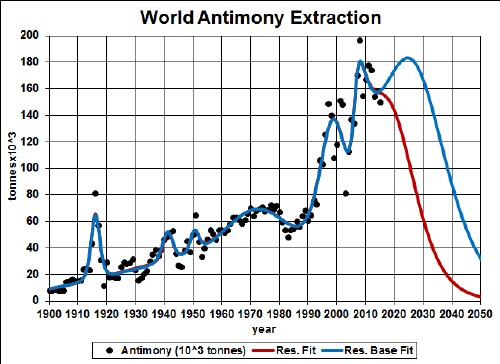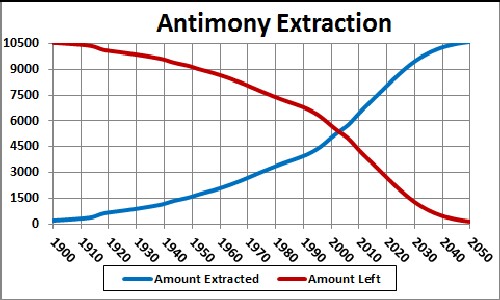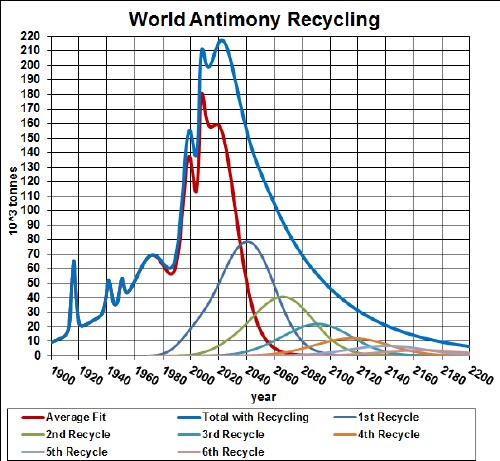
Antimony extraction rate for the world and two Verhulst functions fits to the data.
L. David Roper
http://www.roperld.com/personal/RoperLDavid.htm
2 July, 2016
Antimony is used in a wide variety of materials. he most important use of antimony is as a hardener in lead for storage batteries. The graph below shows the antimony extraction data for the world and Verhulst function fits to the data in order to extrapolate into the future.

Antimony extraction rate for the world and two Verhulst functions fits to the data.
The red curve is obtained by restricting the total extraction to the amount already extracted plus the estimated reserve of 2.0x106 tonnes; the blue curve is obtained by restricting the total extraction to the amount already extracted plus the estimated reserve base of 4.3x106 tonnes.
It appears that the recent rapid rise in extraction rate is unsustainable for more that a few decades or so from now.
Taking an average extraction curve of the two fits, the crossover point at year ~2003 when the amount extracted is equal to the amount left to be extracted is shown here:

Assume that:
The effective antimony available for making items after the first ten recycling cycles is shown in the following graph, along with the effective antimony available for each cycle:

The equation for a recyling cycle is
 ,
,
where Ei is the amount available from the previous cycle. Here is an example of the Excel coding:
{=(($J$2+$I$2)/2+(($J$2-$I$2)/2)*TANH((A27-$K$2)/$L$2))*SUM($I$27:I27*(EXP(-1*((A27-$A$27:A27-$N$2)/$O$2)^2/2))/$O$2/SQRT(2*PI()))} (The curly bracket surrounding the term makes it into an array; it must be entered by holding down the SHIFT & CTRL keys while pressing the ENTER key.)
Thus, under the assumptions given above, the effective amount of antimony available for making items peaks at about year 2020 and falls off rapidly after that. Humans will have taken concentrated antimony deposits and scattered them across the surface of the earth.
The Excel spreadsheet is set up to make it easy to calculate with different recycling assumptions.